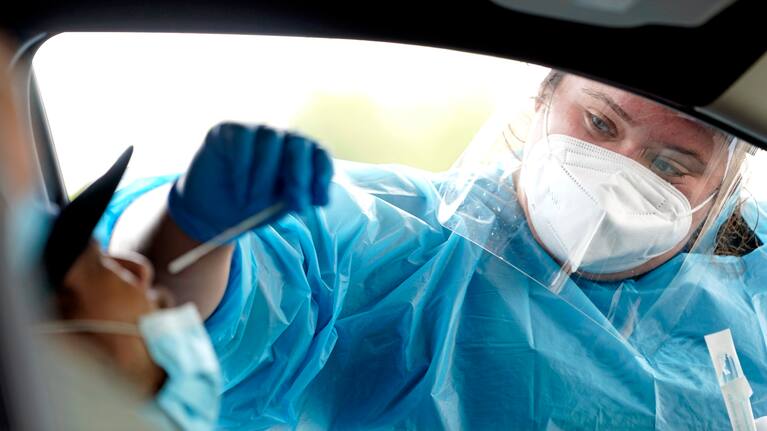Documents released today show a stretched Covid-19 workforce showing signs of fatigue, and mixed-messaging during the February Covid-19 outbreak was cause for concern.
Auckland was thrust back into Level 3 lockdown for about three weeks while the rest of New Zealand went to Level 2 after community cases were detected from February 14 this year. A rapid review was undertaken after the February cluster by the Covid-19 Independent Advisory Group.
On May 6, Sir Brian Roche wrote in a letter to Covid-19 Response Minister Chris Hipkins he was concerned around the "stretched" Covid-19 workforce, showing general signs of fatigue and weariness, adding the conditions put the operating model at significant risk.
"The demands that have been placed on people within the system are extraordinary.
"The lack of clarity about the system's capacity to handle a large outbreak was identified in previous reviews and remains a high priority to be resolved and acted upon."
The report recommended front line health agencies "explicitly consider the issue of burn out and how best to reinforce resilience."
He wrote that relationships and communication between central government agencies "are not working optimally" – causing uncertainty and confusion.
It said there was mixed messaging across various platforms about the 'early, aggressive approach' to the cluster, along with consideration of the diversity of communities.
"We cannot afford to lose the confidence and trust of the public by creating unnecessary complexity or airing conflicting messages."
A review of the Covid-19 workforce raised concerns around fatigue and communication. (Source: Other)
Almost a month later, Sir Brian wrote another letter, saying it was clear New Zealand would be dealing and managing Covid-19 for the long term.
"As such, the system must necessarily shift from a crisis management response and become part of the broader preparedness and response system that can sustainably manage cases of Covid-19 that occur.
"One additional area we would also like to highlight for further exploratory work is the readiness of the health system to manage the Covid-19 cases that may occur once the borders reopen.
"Outbreaks may well be able to be stamped out, but the cases that occur will need to be managed."
He said the incoming health reforms presented an opportunity to integrate Covid-19 response into the wider health system.
Covid-19 Response Minister Chris Hipkins said debate and transparency was vital "on such a critical issue".
"Some of the key insights in this report are being taken on board or have been superseded and others are being worked through."
"Performance against five key indicators were measured as 94 per cent or better, and we've made further progress on contact tracing and workforce planning and capability issues, as the system continues to get stronger."
Hipkins said that the responsiveness to Covid had improved and was shown during the Wellington Sydney-sider scare last month.
"That’s in large part down to the efforts of our health and border workers who week in and week out keep us all safe.
"You only have to look at developments overseas, and the emergence of new more contagious variants, to see that with Covid-19, we cannot let our guard down, and we will not.
On the border and health workforce issues, he said Government was "actively working to relieve pressure on staff working hard to keep their country safe".



















SHARE ME